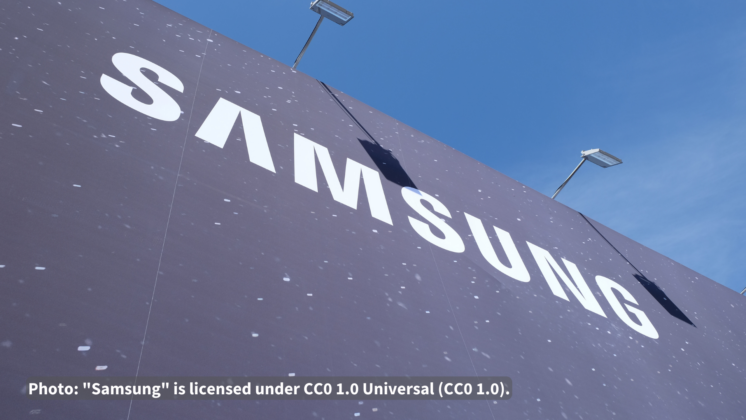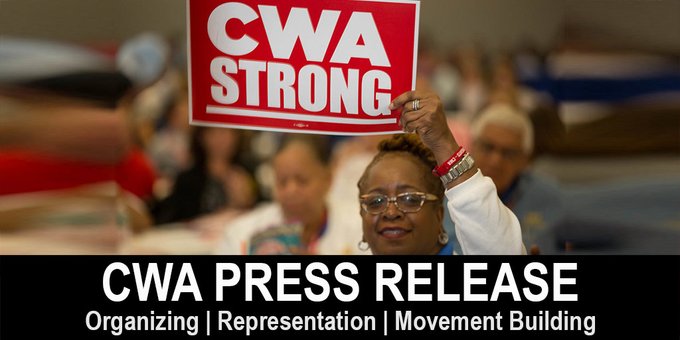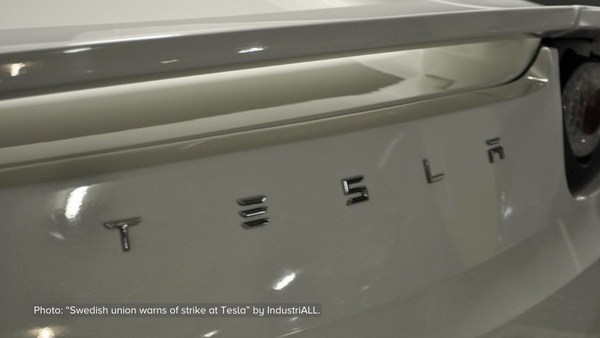SHARPS and the Samsung Electronics Co., Ltd. occupational-disease victims it advocates for have marked the one-year anniversary of their sit-in at the company’s corporate headquarters in south Seoul, with a demand: Lee Jae-young, Samsung’s heir apparent, must begin a new dialogue with the advocacy group and cluster victims, or resign.
“Samsung Has Killed This Many”
On Oct. 7 evening, despite chilling rain and wind, close to 200 labor activists, trade unionists, human-rights advocates, and ordinary citizens rallied at Samsung’s 40-story glass tower. They reaffirmed the resoluteness in their nine-year-plus campaign to bring justice and fair and transparent compensation to the workers who fell victim to blood disorders or pulmonary diseases while working at the company’s chip and LCD plants.
Earlier that day, attired in white “clean suits”, the work uniforms used by the victims, the rally-goers mounted a flash mob at the headquarters and inside the subway station leading to it. They yelled, “Samsung has killed this many people or more!”
Squatters at Samsung’s Heart
About a year ago, on Oct. 7, 2015, SHARPS activists began to pitch a canopy and squat at the gate of Samsung Delight, the company’s so-called global exhibition space, after the world’s largest technology abruptly ended negotiations and unilaterally compensated some victims who decided, often out of their financial desperation, to agree to its confidential terms in return for token payouts.
Samsung has since been dodging other promises made to cluster victims and their advocates. In Jan. 2016, an outside ombudsman committee was formed to monitor Samsung’s implementation of safety measures. Little information has since been available about the committee’s activities.
There is little sign that Samsung has improved workers safety at its plants or suppliers. In Oct. 2016, an independent inquiry by Solidarity for Workers’ Health, a Seoul-based workers safety watchdog, turned up two more workers of Samsung’s suppliers who suffered impaired vision due to methanol use on the job, bringing a total number of such victims up to seven.
Solidarity At Home
Over the year, as SHARPS endured a bitterly cold winter and the hottest summer on record keeping the country’s biggest industrial disaster in the public eye, solidarity began to pour in.
All through the year, a security guard at a neighboring building donated his own breakfast and lunch boxes to the protesters.
An impromptu shrine, erected by SHARPS for the victims, has become ablaze with tens of flower beds and posters written in many different languages by international visitors and foreign passers-by.
Each evening, SHARPS has been hosting “talk relays” in which guest-speakers talk about a wide range of topics from workers safety to global peace. The transcripts are now published by a publishing co-op in a 400-page book titled Now, Samsung Must Answer.
Global Solidarity
The recent rise in global solidarity not only boosts SHARPS’s confidence but also helps widen the scope of its campaign globally.
At the rally, SHARPS announced a global petition drive urging Mr. Lee, set to be voted to the board of director on Oct. 27, to renew talks with the advocacy group or get removed as executive. Before the public release, the petition was endorsed by international groups.
Among them was the International Trade Union Confederation, a network of 168 million workers in 156 countries. On Oct. 7, jointly with IndustrialAll, the ITUC released a report, Samsung –Modern Tech, Medieval Condition lambasting the South Korean conglomerate for its no-union policy and routine worker abuse.
“Beginning with Samsung, we have begun to expose corporate greed and the failure of the world’s biggest corporations to account for abuse in their supply chains,” ITUC General Secretary Sharan Burrow said, commenting on the report.
“Your work in Korea stands tall both in defense of the working people and against corporate greed,” Ms. Burrow said in a recorded video message for SHARPS’s rally, “particularly that of Samsung and the government who refuses put workers first to protect their rights.”
Separately, the ITUC has launched a solidarity petitionwith Labourstart, an international solidarity network for labor rights, calling on the South Korean government to release imprisoned unionists and respect fundamental rights.
To sign SHARPS’ petition, please click here
Lee Jae-yong: Failure To Launch
SHARPS’s international petition, together with growing pressure from rights groups across the world, has come at a critical moment for Mr. Lee’s Samsung.
On Oct. 11, the company said it would pull its latest smartphone, the fire-prone Galaxy 7 Note off the market permanently –only 54 days after its much-hyped release.
Galaxy 7 Note was Mr. Lee’s own ambitious project, the momentum of which he wanted to use to pave the way for his formal inheritance of the Samsung conglomerate from his father Lee Kun-hee, who remains incapacitated since a 2014 heart attack. It was an important opportunity for the son to boost his scant resume blotted largely with a failed Internet venture.
Samsung skipped the serial model number 6 and named the latest model Galaxy 7, releasing it at least one month ahead of schedule. On Aug. 25, about five days into the release, some handsets reportedly caught fire or exploded. On Sept. 1, Samsung issued a recall of 2.5 million handsets, blaming defective batteries made at Samsung SDI, its own affiliate and the producer of 65% of the pre-recall batteries, which recently slashed 35 percent of the workforce.
However, the recall was doomed to fail. With SDI no longer available, Samsung had to produce replacement handsets at 35 percent of battery production capacity. Nevertheless, the company produced 1 million handsets during the first week of the recall.
There was no way for Samsung to manage such a massive recall in such a short period of time without undermining quality or safety. Soon, replacement handsets began to catch fire, leading the company pulling the Galaxy 7 Note off the market entirely.
As usual, Samsung could push its workers only so fast and so hard. And that drive began to backfire.
The Galaxy 7 fiasco revealed Mr. Lee’s incompetence as business leader and Samsung’s ruthlessness as employer.
Start Anew: Dialogue or Else
However, for Mr. Lee, his election to the board is an opportunity to start anew. He should not waste the opportunity to break from the past by showing a new commitment as a stakeholder steward and a corporate citizen.
This why SHARPS and its supporters are petitioning him to reinitiate dialogue. There is nothing new about their demand.. The victims and their advocates are calling on Samsung to renew the commitment to dialogue, on which it reneged by unilaterally walking out of negotiations in 2015.
This is the minimum commitment for Mr. Lee to make. If he does not comply with the petition, SHARPS and its supporters worldwide will step up with a call for his removal as executive of the Samsung conglomerate.
For Samsung stakeholders at home and abroad, there will be little reason to keep the management of the world’s largest technology company in the hands of a scion of the founding family when he fails to prove his managerial competence or to show a commitment to good business ethics.
Please click here and sign SHARPS’ petition urging Samsung to reinitiate dialogue.
Article originally published by SHARPS on 12 October 2016. See here.











